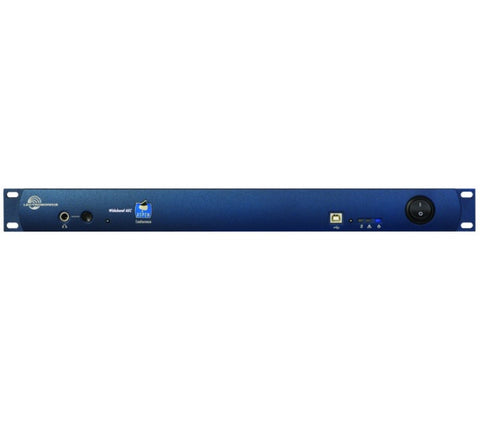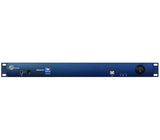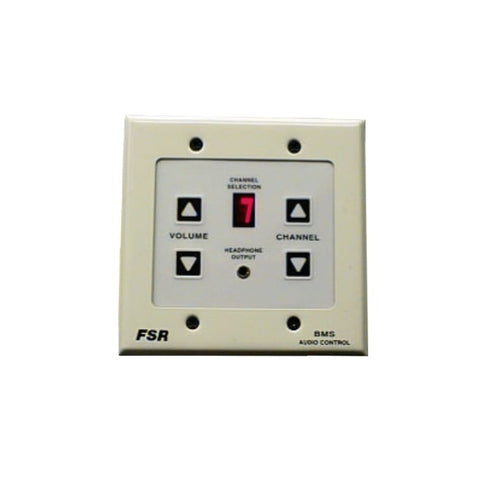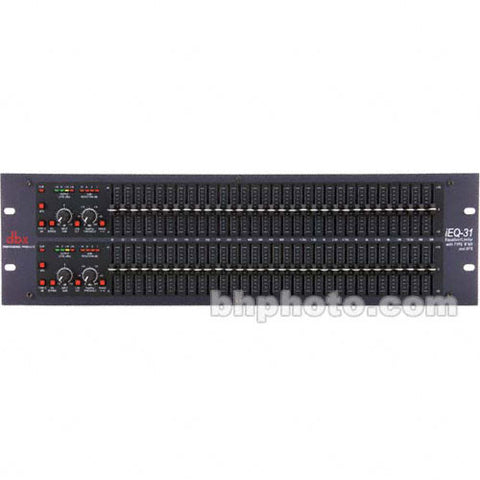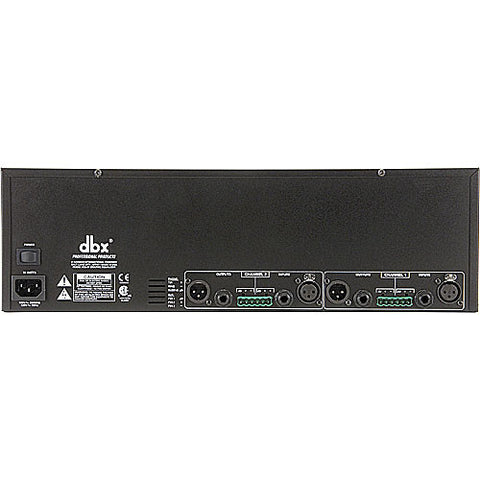Lectrosonics SPNCWB DIGITAL AUDIO PROCESSOR, TEL. HYBRID, PWR AMP, WIDEBAND
Vendor: Lectrosonics
Available

Lectrosonics SPNCWB DIGITAL AUDIO PROCESSOR, TEL. HYBRID, PWR AMP, WIDEBAND
The Lectrosonics SPNCWB wideband conference interface is making the telepresence and multi-site bridging simple and effective in any conference room, that comes along with full bandwidth audio frequency response and a unique Quad-reference AEC. Each conference connection comes including a dedicated AEC for fast and reliable echo cancellation:
- Telephone line (POTS)
- Codec 1
- Codec 2
The fourth AEC is assignable to any final mix in the matrix designed for purposes such as noise cancellation (when fed a signal from a sampling microphone).
The AEC is converging so quick and will remain converged during double-talk and any signal type, that comes including sine waves, enabled by an advanced DSP algorithm. Cancellation depth is increasing even with brief signal peaks from the far ends.
The AEC in combination with the patented proportional gain mixing algorithm (US Patents 5,414,776 and 5,402,500) is capable of providing an outstanding audio quality without echo heard at the far ends. Signals from the far ends of the conference are routed to the local sound system and to three mixes that are used as reference signals by the AEC. Audio from the local microphones (which comes including a far end audio delivered by local loudspeakers) is routed to the AEC with the use of another final mix for cancellation of the far end signals. After processing, the output of the AEC is routed back to the far ends through the matrix.
Three remote sites are possible to be bridged along with a local sound system designed for a seamless telepresence or audio conference. The far end audio signals participate in the same manner as local microphones connected to the mixer.
A full complement of audio signal processing is provided for all inputs and outputs. In addition, a proprietary NRF (noise reduction filter) is provided on each input to suppress noise in severe conditions. The NRF employs a proprietary noise reduction algorithm with the use of a 1/3 octave analysis and downward expansion. The amount of noise reduction applied to the signal at each input is adjustable from 6 dB to 35 dB as needed for the signal conditions and individual preferences. The process is very effective, with almost no audible artifacts up to about 18 dB. Higher values are available for very poor conditions where noise is extremely high and intelligibility is improved at the expense of artifacts in the audio.
A two channel power amplifier is included for loudspeakers in the local sound system. The power amplifier is built driven by final mix outputs from the matrix and comes with a full set of signal processing, that includes delay, parametric EQ, compressor and limiter. Class-D amplification with a late generation component capable of providing an exceptional efficiency, low heat and excellent audio performance. The amplifiers cannot be damaged by wiring errors or unusual loads.
The processor interconnects with other ASPEN processors via the 1Gbp bus built into all models.
- Quad-reference Wideband Acoustic Echo Canceller supporting 3-way Bridging
- Two maximum speed grade, 4th generation SHARC® processors*
- Dual Codec interfaces
- TCP/IP Ethernet Addressable
- Fully integrated with ASPEN digital matrix
- Adaptive Proportional Gain Automatic Mixing at the Matrix Crosspoints
- Third Octave Noise Filter on each channel
- Sigma-delta class-D audio power amplifiers
Acoustic Echo Canceller: 128 ms tail time - will never diverge, regardless of signal type (i.e. sine wave)
Line Echo Canceller: 48 ms tail time
Telephone Hybrid Return Loss: 26 dB + line echo canceller = 45 dB
Audio inputs (Codec):
Gain: -20 dB to +20 dB, programmable in 1 dB steps
Input impedance: 15k ohm (differential); 375k (common)
Connector: 5-pin Phoenix
Audio outputs (Codec): Floating balanced
Nominal level: 0 dBu
Output impedance: 50 Ω
Input Dynamic Range (Codec): 102 dB (unweighted 20 - 20 kHz)
Output Dynamic Range (Codec): 105 dB (unweighted 20 - 20 kHz)
Audio Performance (Codec):
THD + noise: 0.01%
Front Panel Connectors:
• 1/4 inch headphone monitor jack with level control
• Standard USB
Rear Panel Connectors:
Power: IEC 60320 C14
RS-232: DB-9
Ethernet: RJ-45
Programmable Logic I/O: DB-25
ASPEN port: Dual RJ-45
Remote control: Dual RJ-45
Power amp output: 5-pin Phoenix
Line Inputs/Outputs: (2) 5-pin Phoenix
Telephone Set/Line: (2) RJ-11
Proprietary network
Physical level: LVDS (Low Voltage DIfferential Signal) high speed
Cable type: CAT-6
Transmission speed: 1 Gbps
Programmable control inputs
Number of inputs: 15
Analog voltage range: 0-5V
Logic input: TTL, LVTTL, CMOS, LVCMOS
Programmable control outputs
Number of logic outputs: 8
Logic control: active low
Max sink current: 100 mA
Max supply voltage: 40 V
Supply voltage for control I/O: 5 V
Max current: 750 mA
Cabled Remote Controls:
Codec 1: Lectrosonics RCWTH4; RJ-45 jack
Tel: Lectrosonics RCWTH4; RJ-45 jack
Power requirements: 100-240 VAC, 50/60 Hz
Power consumption: 15 Watts
Dimensions:
Faceplate: Standard 19 inch 1RU
Housing (WxHxD): 17.50 x 1.72 x 7.25 inches
Weight: 3.56 lbs. (without AC cord)
 USD
USD EUR
EUR
 AUD
AUD
 GBP
GBP
 JPY
JPY

